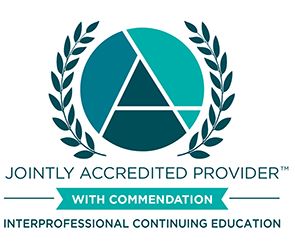Training for Systems Change: Addressing Tobacco and Behavioral Health 2025-2027
People affected by mental illness and/or a substance use disorder smoke at far higher rates than the general public. Despite this, they are less likely to make quit attempts using evidence-based treatment. There is a compelling need to integrate tobacco policy and tobacco dependence treatment into the behavioral healthcare system. These two courses address this need. Through these courses, you will learn how to successfully address tobacco in your clinical setting.
To see why this training is so important, watch this 40 second video:
Intended Audience
Practitioners who provide health care to people with mental illness/substance abuse disorders, obligated to address the nicotine addiction of their patients as part of their scope of practice, including physicians, nurses, physician assistants, social workers, and mental health and substance abuse providers. Program Directors and Quality Improvement staff will also benefit from this activity, as they are obligated to adopt policies regarding the use of tobacco.
Learning Objectives
Upon completion of this activity, members of the healthcare team will be to:
- Describe what constitutes evidence-based tobacco dependence treatment
- Develop a plan to integrate evidence-based tobacco dependence treatment and policy that is tailored to their setting
- Implement a tobacco policy in their treatment setting and more evidence-based tobacco dependence treatment will be provided to patients.
Faculty Disclosure
It is the policy of the University of Wisconsin–Madison Interprofessional Continuing Education Partnership (ICEP) to identify, mitigate and disclose all relevant financial relationships with ineligible companies* held by the speakers/presenters, authors, planners, and other persons who may influence the content of this accredited continuing education (CE). In addition, speakers, presenters and authors must disclose any planned discussion of unlabeled/unapproved uses of drugs or devices during their presentation.
* Ineligible companies are those whose primary business is producing, marketing, selling, re-selling, or distributing healthcare products used by or on, patients. The ACCME does not consider providers of clinical services directly to patients to be ineligible companies.
For this accredited continuing educational activity all relevant financial relationships have been mitigated and detailed disclosures are listed below:
CURRENT DISCLOSURES
| Name | Role | Financial Relationship Disclosures | Discussion of Unlabeled/Unapproved Uses of Drugs/Devices in Presentation? |
| Brooke Anderson, DNP, RN University of Wisconsin Center for Tobacco Research and Intervention Director of Human Resources and Research Administration | Peer Reviewer, Planner | No relevant relationships with ineligible companies to disclose | No |
| Karen Conner, MPH University of Wisconsin Center for Tobacco Research and Intervention Director of Outreach Programs | Course Director, Peer Reviewer, Planner | No relevant relationships with ineligible companies to disclose | No |
| Hasmeena Kathuria, MD University of Wisconsin Center for Tobacco Research and Intervention Director | Peer Reviewer, Planner | No relevant relationships with ineligible companies to disclose | No |
| Jesse Kaye, PhD University of Wisconsin Center for Tobacco Research and Intervention Scientist | Peer Reviewer, Planner | No relevant relationships with ineligible companies to disclose | No |
| Susan Lundsten, BS University of Wisconsin Center for Tobacco Research and Intervention Western Wisconsin Regional Outreach Specialist | Peer Reviewer, Planner | No relevant relationships with ineligible companies to disclose | No |
| Hilleary Reinhardt, LCSW, MSW UW Health Behavioral Health Clinician | Peer Reviewer | No relevant relationships with ineligible companies to disclose | No |
Accreditation Statement
 | In support of improving patient care, the University of Wisconsin–Madison ICEP is jointly accredited by the Accreditation Council for Continuing Medical Education (ACCME), the Accreditation Council for Pharmacy Education (ACPE), and the American Nurses Credentialing Center (ANCC) to provide continuing education for the healthcare team.
|
See individual sessions for credit designation.
Registration for this activity can only be completed through the ICEP Learning Portal. Attendee registrations made through any other sites cannot be honored. UW-Madison ICEP is not able to refund fees paid through unaffiliated registration sites, such as eMedEvents.com, MedConfWorld.com, EventEgg.com, and 10times.com. Please report any unauthorized websites or solicitations for registrations to [email protected].
Accessibility
If you need anything to participate in this program, please contact [email protected].
Required Hardware/software
Computer, tablet, or other mobile device with sound (closed captioning also available).
Free, current version of Edge, Firefox, Safari, or Chrome. Some older browsers and Internet Explorer could produce error messages or not display the content correctly.
Free, current version of Adobe Acrobat Reader or other .pdf reader.

 Facebook
Facebook X
X LinkedIn
LinkedIn Forward
Forward